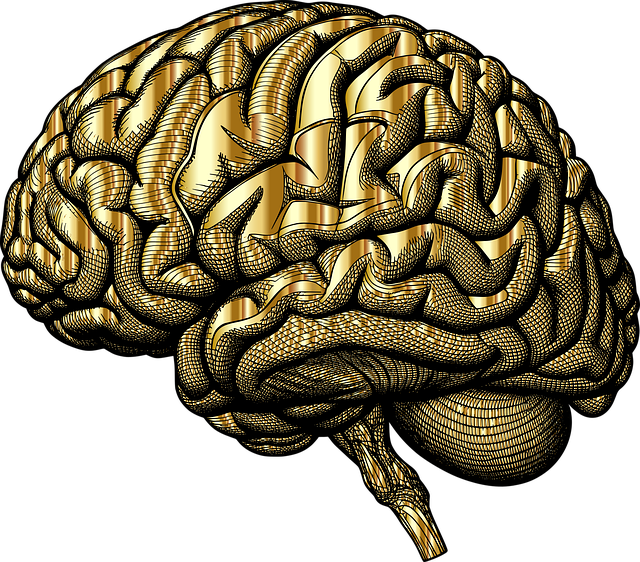Understanding Mood Regulation highlights the vital role of communication in emotional well-being, especially within Golden Couples. Therapy serves as a safe space to address unspoken tensions and communication issues stemming from burnout or unresolved dynamics. By fostering active listening, empathy, and clear expression of needs, couples therapy strengthens bonds, enhances understanding, and promotes conflict resolution. This leads to improved mental wellness and deeper emotional connections. Integrating techniques like CBT and compassion cultivation, alongside culturally sensitive practices, can significantly benefit both personal and professional relationships, including healthcare settings, by promoting healthier work-life balances for providers and enhanced patient care.
Mood regulation strategies are essential tools for couples facing emotional challenges. This comprehensive guide explores various approaches, focusing on effective communication as a cornerstone. We delve into the ‘Golden Rules’ for couples, offering insights on overcoming therapy barriers and enhancing emotional connection. By integrating techniques from counseling sessions into everyday life, partners can navigate communication issues, fostering stronger bonds. Discover how therapy provides a safe space to address hidden conflicts, ultimately transforming relationships and improving overall well-being.
- Understanding Mood Regulation: The Role of Communication
- Golden Rules for Couples Facing Emotional Challenges
- Therapy as a Safe Space: Overcoming Communication Barriers
- Strategies to Enhance Emotional Connection and Intimacy
- Integrating Mood Regulation Techniques into Everyday Life
Understanding Mood Regulation: The Role of Communication

Understanding Mood Regulation: The Role of Communication
Mood regulation is a complex process that involves managing and stabilizing our emotional states. In many cases, effective communication serves as the cornerstone for achieving this balance. When individuals struggle with their moods, often stemming from underlying issues like burnout or unaddressed communication problems within relationships (including Golden Couples), therapy becomes a valuable tool. Therapy provides a safe space to explore these dynamics, helping clients identify and resolve communication issues that can significantly impact their emotional well-being.
Communication strategies are crucial in mood regulation because they enable individuals to express their feelings, needs, and boundaries effectively. By fostering open dialogue, these strategies promote understanding and empathy, both within personal relationships and in professional settings like healthcare. Healthcare providers, for instance, can employ positive thinking techniques and burnout prevention strategies alongside improved communication to enhance patient care and maintain a healthier work-life balance.
Golden Rules for Couples Facing Emotional Challenges

When couples face emotional challenges, establishing golden rules can significantly enhance their communication and overall mental wellness. The first step is to create a safe and non-judgmental space where both partners feel heard and respected. Active listening and empathy are crucial; each individual should have the opportunity to express their feelings without interruption or criticism. This fosters an environment conducive to understanding and resolving conflicts constructively.
Couples therapy, often facilitated by professionals with expertise in cultural sensitivity in mental healthcare practice, can teach them these golden rules. Effective communication skills, including clear expression of needs and boundaries, are essential tools for maintaining mental wellness. Through therapy, couples learn to navigate their emotions together, ensuring that their relationship becomes a sanctuary where they can safely confront and overcome challenges, ultimately strengthening their bond and enhancing their mental wellness.
Therapy as a Safe Space: Overcoming Communication Barriers

Therapy provides a unique and safe space for couples to navigate their communication issues. Many relationships struggle with unspoken tensions, misunderstandings, and unresolved conflicts that can significantly impact emotional well-being. This is where professional help becomes invaluable. Therapists offer a non-judgmental environment, fostering open dialogue and encouraging self-awareness exercises that promote better understanding.
By addressing these challenges head-on, couples can begin to unravel the intricate web of communication barriers. Through various emotional healing processes, they learn effective strategies for managing stress reduction methods, enhancing connection, and building stronger bonds. The therapeutic journey allows them to explore unspoken desires, fears, and expectations, ultimately transforming their interactions into a source of growth and intimacy rather than conflict.
Strategies to Enhance Emotional Connection and Intimacy

In relationships, fostering emotional connection and intimacy is a powerful strategy for mood regulation. Couples therapy plays a crucial role here, addressing Golden Couple Communication Issues that may have developed over time. Through professional guidance, partners learn to express their feelings openly, improving understanding and empathy. This enhanced communication fosters a deeper bond, providing a safe space to share vulnerabilities and strengthen emotional support systems.
Cultural sensitivity in mental healthcare practice is essential when exploring these connections. Different cultures have unique expressions of love and intimacy, so therapists must be adept at tailoring their approaches. Public awareness campaigns can also contribute by educating folks on the importance of self-care practices, like mindfulness exercises, that promote emotional regulation and strengthen relationships. By integrating these strategies, couples can navigate their emotional landscapes more effectively, enhancing both individual and collective well-being.
Integrating Mood Regulation Techniques into Everyday Life

Integrating mood regulation techniques into everyday life can significantly enhance emotional well-being and mitigate stress. Therapies like cognitive behavioral therapy (CBT) offer structured tools to identify and challenge negative thought patterns, fostering a more positive mindset. Pairing this with compassion cultivation practices, such as mindfulness and empathy building, allows individuals to develop deeper self-awareness and improve their relationships, forming what could be termed the “golden couple” of mental health strategies.
Effective communication is another key aspect that deserves mention in this context. Addressing communication issues through therapy can help resolve underlying conflicts and strengthen bonds, whether in personal or professional settings. Moreover, considering cultural sensitivity in mental healthcare practice ensures that these techniques are tailored to individual needs and backgrounds, promoting inclusivity and accessibility in community outreach program implementations.
Mood regulation is a crucial aspect of fostering healthy relationships, especially for golden couples navigating communication issues. By understanding the role of effective communication and employing strategies like therapy to overcome barriers, partners can enhance their emotional connection. Integrating techniques such as active listening, empathy, and open dialogue into everyday life allows for better management of emotions, strengthening the bond between them. Through these practices, couples communication improves, leading to a more fulfilling and intimate relationship.












